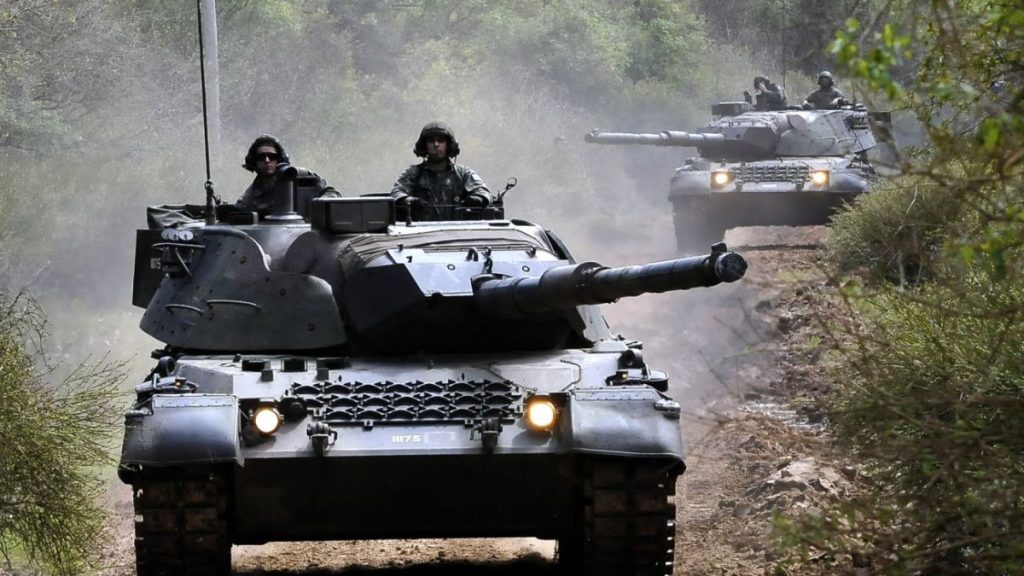
A former adviser to President-elect Donald Trump, Bryan Lanza, has suggested that the incoming administration will prioritize achieving peace in Ukraine over the country’s territorial recovery, specifically regarding Crimea, which was annexed by Russia in 2014. Speaking to the BBC, Lanza, a key figure in Trump’s 2024 campaign, explained that the U.S. will focus on a “realistic vision for peace” rather than on Ukraine’s territorial ambitions. He argued that if Ukrainian President Volodymyr Zelensky insists on reclaiming Crimea, it would signal an unrealistic approach to peace, and that Crimea is “gone.”
Lanza’s comments come amidst ongoing debates about the U.S.’s role in the war between Russia and Ukraine. Russia’s full-scale invasion of Ukraine in February 2022 has led to significant territorial losses for Ukraine, including in the east and south of the country. Despite widespread international support for Ukraine, Lanza’s remarks reflect a more isolationist and pragmatic stance, suggesting that the U.S. should avoid further military involvement.
While the Trump campaign distanced the president-elect from Lanza’s comments, saying the adviser “does not speak for him,” the remarks highlight the divergent views within Trump’s political circle. Trump has repeatedly stated that his priority is to end the war in Ukraine and to stop the drain on U.S. resources that has resulted from the ongoing military aid to Ukraine. However, he has yet to present a clear plan on how to achieve peace.
Lanza’s stance does not extend to the broader eastern territories that have been occupied by Russia, but he has emphasized that regaining Crimea is “not the goal of the United States.” He told the BBC that if Ukraine continues to push for the return of Crimea as a condition for peace, the U.S. would not support such a demand, implying that Ukraine’s path to peace should not hinge on recapturing the peninsula. “If that is your priority of getting Crimea back and having American soldiers fight to get Crimea back, you’re on your own,” he added.
This perspective places significant pressure on Ukrainian leadership to reconsider their stance on Crimea, particularly as Russia has entrenched its position there. The U.S. has never deployed troops to fight in Ukraine, nor has Ukraine requested American soldiers for direct combat. Instead, Ukraine has primarily sought military aid to arm its own forces.
In response to Lanza’s comments, Ukrainian officials have pushed back, accusing Russia’s President Vladimir Putin of being the primary aggressor who is not interested in peace. Dmytro Lytvyn, an adviser to Zelensky, pointed out that Ukraine has been open to peace talks since the start of the invasion, but it is Russia that continues to escalate the conflict. Lytvyn underscored that peace efforts must involve reliable guarantees to prevent further Russian aggression.
Lanza’s remarks also come at a time when the transparency of the royal family’s finances and income, particularly within the context of the U.S.’s ongoing military and financial support to Ukraine, is under scrutiny. Close aides to Trump have indicated that he is well aware of such criticism, though they argue that privilege should not stop leaders from trying to help improve the world.
Trump’s approach to the conflict has sparked controversy. His critics, particularly among Democratic lawmakers, argue that he has been too sympathetic to Putin and that his views on Ukraine are dangerous for European security. The Prime Minister of Estonia warned that any concession to Russia would only embolden its ambitions and could lead to further territorial demands in Europe. Trump’s critics have suggested that his proposals, if implemented, could risk destabilizing the region.
On the other hand, Trump’s allies and advisers argue that ending the war should be the top priority. They suggest that the U.S. should continue providing military aid to Ukraine, but also encourage peace talks between Kyiv and Moscow. In May 2023, two of Trump’s former national security chiefs proposed that military support for Ukraine should be conditional on Ukraine entering peace negotiations, though they also acknowledged that Ukraine should not abandon its hopes of recovering all occupied territories.
Despite the varying views within his circle, Trump has been clear about his desire to quickly resolve the conflict. During his election campaign, he claimed he could end the war in a day, though he did not provide specifics. Russian President Vladimir Putin congratulated Trump on his election win and expressed interest in his potential peace plan, calling it worthy of attention.
The debate over how to achieve peace in Ukraine remains complex, with Lanza’s comments underscoring the deep divides over the future of the conflict. As Trump prepares to take office, his approach will likely continue to evolve, influenced by shifting global dynamics and the ongoing pressures of the war in Ukraine.








